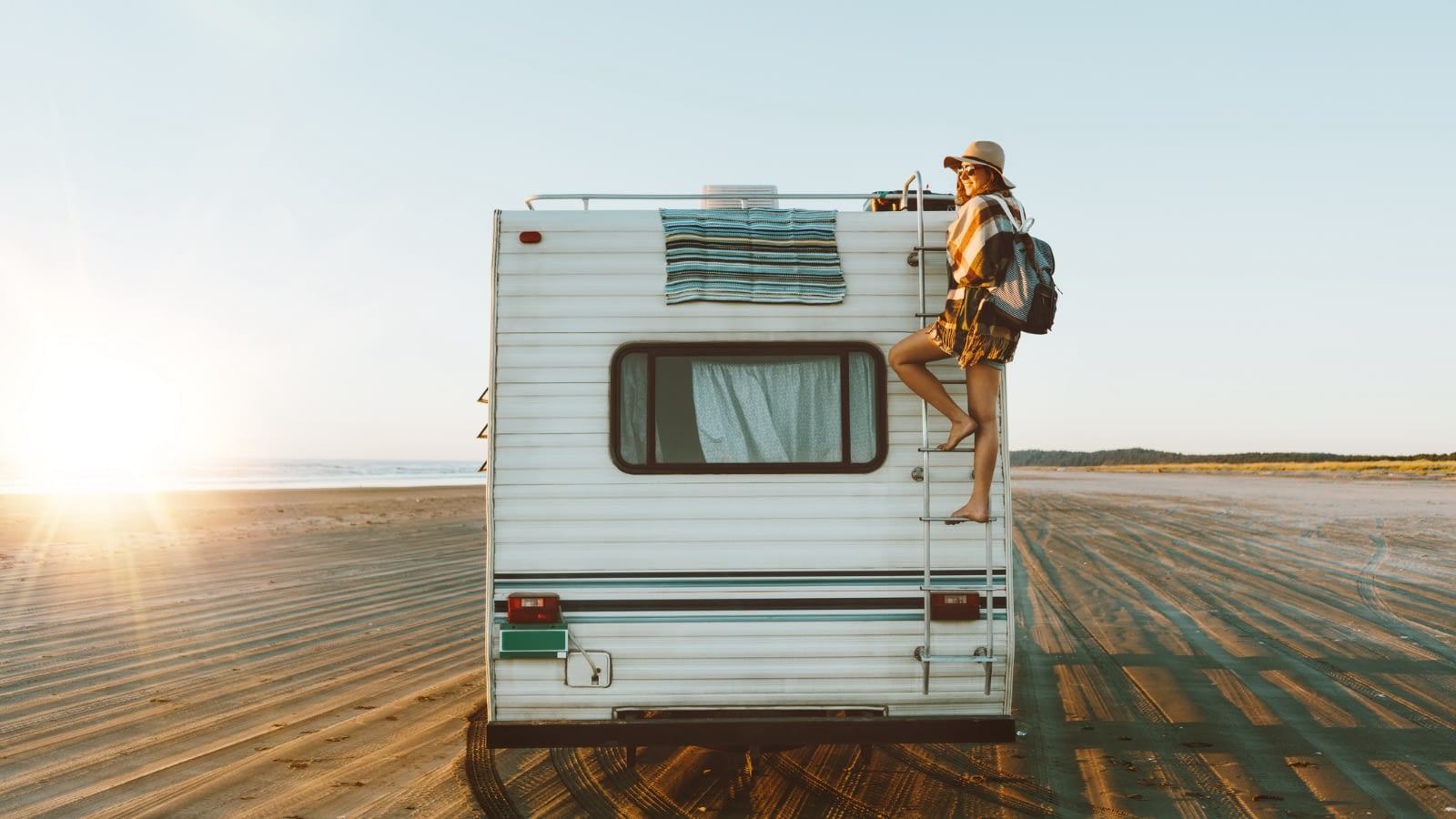

Owning an RV gives you the freedom to explore. You can wake up with mountain views one day and enjoy ocean breezes the next. However, with freedom comes responsibility, and that is when RV insurance factors in. Whether you are a full-time nomad or a weekend warrior, understanding RV insurance options is crucial for protecting your investment and safeguarding against unexpected risks.
What Is RV Insurance?
RV insurance is specialized coverage designed to protect recreational vehicles like motorhomes, travel trailers, and camper vans. It is a blend of auto and homeowners insurance, addressing the vehicle’s mobility and the comforts of the living space. The type of RV you own can impact the coverage you need. Generally, RV insurance is categorized into two types:
- Motorized RVs (Classes A, B, and C): As they are driven on the road, these vehicles require more comprehensive coverage, including liability and collision.
- Towable RVs (Fifth-wheels, travel trailers, pop-up campers): Although these typically require less insurance, as liability may extend from your primary auto policy, coverage for damage and personal belongings is still essential.
Key Coverages to Consider
RV insurance is designed to cover hazards associated with owning and operating a recreational vehicle. The following are basic coverage options:
- Liability: This insurance covers bodily injury and property damage (including vehicles, homes, structures, and landscaping) sustained by others if you are at fault for an accident.
- Collision: If you collide with another vehicle or a fixed object, collision coverage covers damage to the RV, regardless of who was at fault for the accident.
- Comprehensive: This coverage protects against damages that are not related to a collision, such as theft, vandalism, storms, and damage from falling branches, rocks, or debris.
- Medical payments: If you or your passengers are injured in an accident, this covers your medical expenses.
- Uninsured or underinsured motorist: This coverage kicks in if you are involved in an accident with a driver who has no insurance or insufficient insurance to cover your damages.
Do You Need Full-time RV Insurance in New York?
If your RV is your primary residence, or you use it for six months or more of the year, full-time RV insurance is a must and required by most lenders. It is an enhanced level of coverage added to a standard RV insurance policy to provide more extensive liability and personal insurance protection, similar to homeowners’ insurance. The following are key features of full-time RV insurance:
- Personal liability coverage: This protects you if someone is injured in or around your RV.
- Medical payments: This covers the medical costs of guests sustaining an injury while visiting your RV.
- Loss assessment: This coverage protects if you are part of an RV association that requires shared costs for damages to common areas.
- Personal belongings coverage: Recognizing the RV as a full-time residence, this insurance provides more comprehensive coverage for your personal possessions in your RV.
- Emergency expense allowance: This helps cover temporary living costs if your RV becomes uninhabitable after an accident or covered event.
Save on RV Insurance
RV insurance does not have to break the bank. Speak with one of our friendly agents at LPL Risk Management for tips on how to lower your premiums while maintaining the coverage you need. Give us a call today at (631) 676-7020.
